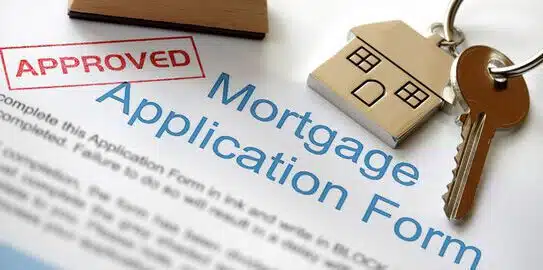What is a credit score?
What is a good credit score?
- Your credit score is a rating given to you that shows your financial history.
- Lenders use your credit score as a factor when assessing a loan application to determine the level of risk they would be taking on if they approved your loan.
- Your credit score can impact how much you can borrow, or
- which companies will lend to you, or
- the interest you may be charged
However, credit score is not the only thing lenders consider whilst assessing your application. Additional areas lenders consider include the following:
- your income,
- assets,
- debts, and
- expenses
Fortunately, a bad credit score, although not desirable, doesn’t necessarily mean you can’t get a mortgage or loan.
In fact, Platinum Mortgages specialises in helping clients get mortgage approvals with bad credit or debt.

How is my credit score determined?
The information in the credit report is used to calculate the credit score.
When you borrow money or use hire-purchase, it is recorded in your credit report. The loan payments you make, whether you pay on time, or late, or default, are noted and recorded. Additionally, utility bill payments (such as phone or power) are noted, whether you made them on time or late.
There are some other, perhaps less obvious, things that can be part of the credit report and impact your credit score. Examples include how often you take out loans, the lenders you use, how often your credit is checked and how often you change your address.
How and where can I get a copy of my credit report?
There are three main companies in New Zealand that track your credit information. These are:
- Equifax
- Centrix and
- illion
These are different companies, and therefore, each one does its own data management and calculations to determine your credit score. This means there is no ‘one source of truth’ for your credit score. There may be, and in fact are, actual score overlaps, which is illustrated in the table below.
It’s free to get a copy of your credit report, although there may be a charge if you need it urgently. To get access to your report, you can use Credit Simple (illion), My Credit File (Equifax), or go to Centrix’s main website.
Once you get your credit report you need to check it because errors may negatively impact the credit rating. If you find there is incorrect information in the credit report you will need to go to all three companies to get it fixed.
What is a good credit score?

Credit scores are between 0 and 1,000, with 0 being the worst possible score and 1,000 the best at illion and Centrix, whilst Equifax best is 1200. A score of 500 and above is generally considered “good”. There are however, overlaps as illustrated below.
| Credit result | Illion | Equifax | Centrix |
| Excellent | 800-1000 | 833-1200 | 846-1000 |
| Very Good | 700-799 | 726-832 | 769-845 |
| Average | 500-699 | 622-725 | 650-768 |
| Fair | 300-499 | 510-621 | 495-649 |
| Low | 0-299 | 0-509 | 0-494 |
Illustration of overlapping credit scores
Who has access to my credit report?
Providers can ask for your permission to access your credit report. This is common practice when you:
- Apply for a home loan or credit
- Sign up with a utilities company (electricity, internet etc)
- Apply for a job (especially if you have financial responsibilities)
- Apply to rent a property
Your credit report can be provided without your permission to certain government agencies, debt collectors and in court proceedings against you.
How do I improve my credit rating?
Depending on the reason for your low score, here are some recommendations on how to improve your credit rating:
- Firstly, check your credit report is correct. If it includes incorrect information, contact the credit report companies to get it fixed. If there are loans and credit checks you didn’t approve, you may be a victim of fraud. Consequently you would want to address this by reporting it to the authorities, and they will give you more information on what to do in that case.
- Start building a good payment history by consistently paying your bills on time.
- Pay down current debts as much as possible.
- Avoid taking on unnecessary or additional debt.
- Reduce the number of credit cards you have, as well as your credit card limits.
Your credit report is made up of data from the previous four years only. Therefore, over time you can build up a history of good financial behaviours while the history of negative behaviours drops off the record.
Whether your credit report is sparkling or looking a little worse for wear, we can find your best mortgage solution. So talk to us today for advice specific to you.



